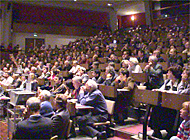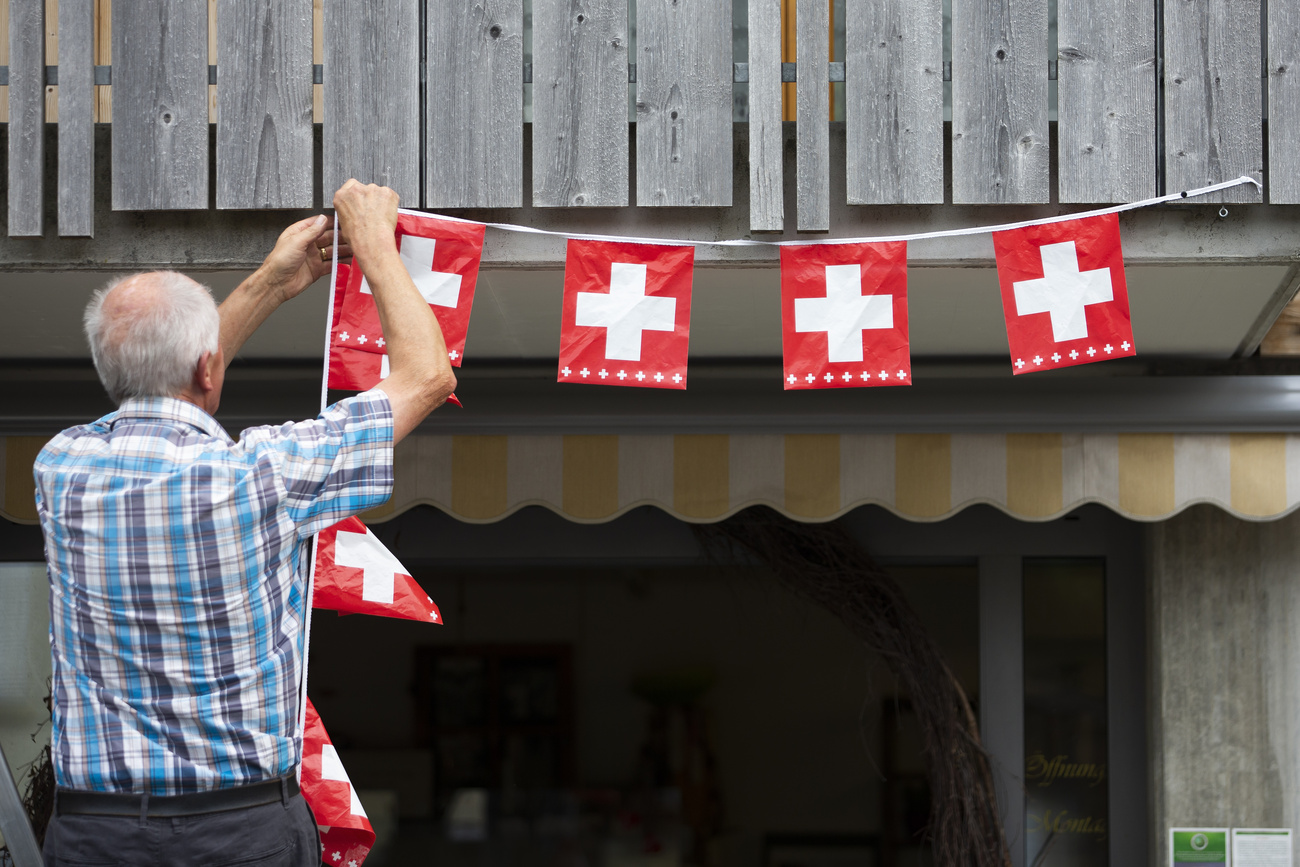
CERN festival combats physics image problem

The Geneva-based European Organisation for Nuclear Research, or CERN, is hosting Europe's biggest-ever fair for physics teachers. Physics on Stage is intended to help reverse a worrying decline in the number of young people studying the subject.
The event, which coincides with European Science and Technology week, is being jointly organised by the three biggest physics research institutions in Europe: CERN, the European Space Agency and the European Southern Observatory.
It is the first time they have worked together so closely. The catalyst has been the brain drain away from physics.
“One of our aims is to assess the situation. And it seems to be a very serious situation,” says CERN’s chief spokesman, Neil Calder.
In virtually every European country, the number of people studying physics at university has fallen dramatically. In Germany, there has been a 50 per cent drop in five years. This trend has a significant impact on the number of people who go into physics teaching.
“We need to assess whether this is a cyclical situation, or whether we are heading towards something which could be a catastrophe for the European economy and general culture,” Calder told swissinfo.
“If there are no young people studying science, who will repair our computers in 10 years time? Who will do innovative research? It probably won’t be Europeans,” he added.
The job of teachers is to show their pupils that physics is all around us and governs our lives, and to convince them that it can be entertaining.
To this end, a wide range of new ways of teaching physics will be on display, as well as demonstrations that show that physics is fun.
These include a group from Ireland playing musical instruments made from plumbing materials, a Swiss play about anti-matter and a Polish demonstration on the physics of table tennis.
Running alongside the presentations and workshops is a fair at which teachers from different countries can meet and discuss new ideas. Some 400 delegates from 24 countries are at CERN for the event.
“It’s clear that physics teaching could do with a serious shake-up,” Calder says.
“Traditionally, physics has been based heavily on maths. The philosophical and cultural aspects of physics – where do we come from, what are we made of – tend to be forgotten. Physics should be made more relevant to young people,” he adds.
by Roy Probert

In compliance with the JTI standards
More: SWI swissinfo.ch certified by the Journalism Trust Initiative
















![The four-metre-long painting "Sonntag der Bergbauern" [Sunday of the Mountain Farmers, 1923-24/26] had to be removed by a crane from the German Chancellery in Berlin for the exhibition in Bern.](https://www.swissinfo.ch/content/wp-content/uploads/sites/13/2025/12/01_Pressebild_KirchnerxKirchner.jpg?ver=a45b19f3)










You can find an overview of ongoing debates with our journalists here . Please join us!
If you want to start a conversation about a topic raised in this article or want to report factual errors, email us at english@swissinfo.ch.